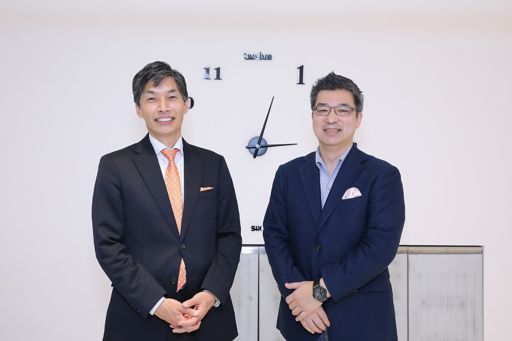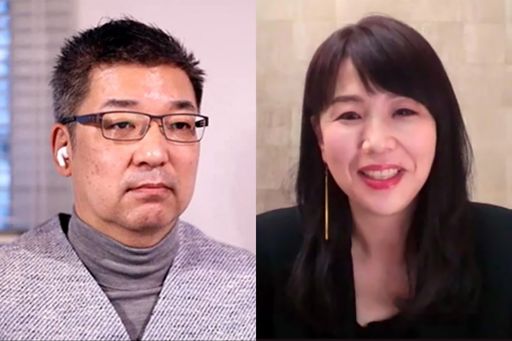The environment surrounding "work" is changing intricately and rapidly, with the reform of working style, the spread of remote work through telecommuting, the lifting of the ban on side jobs at large companies, early retirement and the increasing need for recurrent education. It is also a well-known fact that disruptive technologies are continuing to evolve concurrently.
Against this backdrop, we have often come to hear the phrase, "It is important for workers to enhance and demonstrate their individual strengths."
In reality, however, there may not be many "workers" or "workplaces" that are ready to demonstrate this. How can individual strength be harnessed in the post-COVID-19 working style? And how will digital technology be used to enhance this?
In this article, we will introduce the discussions conducted on the above theme between Koichiro Yoshida of CrowdWorks, Inc. and Masayuki Chatani of KPMG Ignition Tokyo. During the discussion, they also envision and fantasize about the meaning of “work” in 50 and 100 years from now.
Contents
- Second Startup Plan Born from First Failure
- Feeling of Gratitude Received When I Was All Alone in the Office
- Companies Need a Dream to Make Employees Want “to Stay”
- Scope of Work Will Expand and Location Restrictions Will be Eliminated Going Forward
- Realizations Gained from Situation where Nine out of Ten People Are Unable to Get Jobs
- “How to Contribute to Nine out of Ten People"
- How Do We Move beyond the Biases Associated with "Working?"
- The Meaning of "Working Style" Will Change
- What Is Necessary for Diversity Surrounding "Work" to Be Established
- Profile of Interviewee
Second Startup Plan Born from First Failure
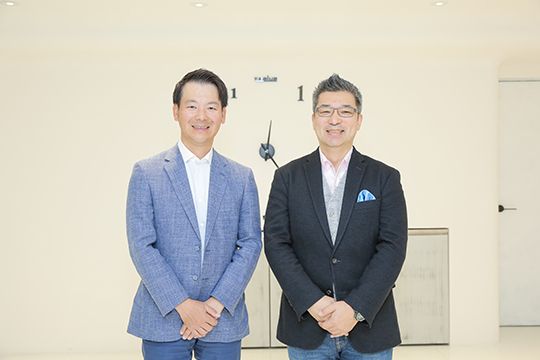

(Koichiro Yoshida, President and CEO, CrowdWorks, Inc. (left), Masayuki Chatani, Representative Director & CEO of KPMG Ignition Tokyo and CDO of KPMG Japan (right)) *Professional affiliation and official position in the article are at the time of publication.
Chatani: I remember it was around 2010 that I first met you. At the time, you told me about the concept of CrowdWorks to match home-based workers with companies that place work orders online, and I was impressed that you were starting an interesting service. Regarding this so-called crowdsourcing business model, what made you see potential in this field?
Yoshida: There were many twists and turns and I experienced so many things before I started CrowdWorks. Looking back, you could say that our current business is the result of connecting dots and dots of experiences into one.
Actually, CrowdWorks is my second startup. In my first startup venture, I launched about 20 businesses. For instance, I was engaged in an apparel business in Vietnam, but in the process of importing and exporting clothing, I often encountered the "problem" of not being able to ship goods out of Vietnam for no particular reason. They were stopped by local customs. In the worst case, they were stopped at customs for over a month, and I could only send e-mails from Vietnam to Japan saying that the goods couldn’t be shipped out again today.
In the meantime, I came to realize that goods can be stopped by customs but emails cannot, and while the distribution of goods is carried out with the existing social infrastructure, the Internet is working as a new infrastructure. This is how I came to think of doing business based on the Internet.
In my first startup, I was also involved in contract work and consulting projects. I often came across cases where the business was too small to be handled on a company-to-company basis and it was difficult to make a profit, but it could be handled profitably and content-wise by an individual.
You would probably think, then why not place orders to an individual, but conventional Japanese companies, especially at the time, would say, "We cannot place orders to an individual. We need to go through a corporation, so we want you to establish a company.”
Meanwhile, I heard that work was already being ordered and received between individuals in the U.S., which coincided with the realization that "things can be stopped but the Internet cannot," and so the idea of "doing crowdsourcing business" was born.
Feeling of Gratitude Received When I Was All Alone in the Office
Chatani: It must have been quite a challenge to have done 20 businesses in your first startup. What kind of businesses did you do in addition to what you just mentioned?
Yoshida: I took on so many challenges that I can't remember them all. For instance, I said to myself, "I’ll try importing and exporting wine to China because I like wine," or "I’ll start an e-commerce website specializing in selling men’s skirts because there’s no such store.”
The store specializing in men's skirts was covered in magazines and on TV and was much talked about as "the age of men in skirts is coming!” However, the scale of the market was so small that monthly sales amounted to only about 300,000 yen, and we had to withdraw from the business even though we were happy with the sales.
In the midst of all this, when I began to wonder what it was that I really wanted to do, my colleagues at the time left the company, bringing our business partners with them. I was quite depressed for a month or so. This was around 2010.
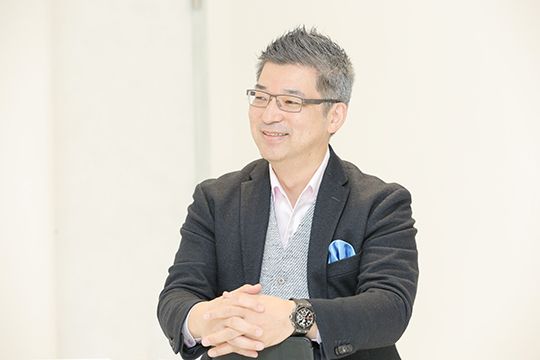

“What's the point of operating a company?" I thought. I was alone in the office agonizing over this question when I received a year-end gift from a company. When I saw it, I keenly remember how happy I was that someone remembered me. I was in an empty office with nothing left but clothing inventory after my colleagues took all our clients, but someone remembered what I had done in the past, and that person sent me a thank-you gift....
At that moment, everything seemed to clear up before my eyes, as I realized that although I had always wanted to make money, the most important thing is to connect with people, contribute to them, and be thanked by them.
From there on, I thought of what I could do to help others and decided to devote myself to that. Just around the same time, an investor approached me, saying that there was a business called crowdsourcing. When I looked into the nature of this business, I felt that I had a lot of experience in contract and consulting businesses and that this would allow me to fully demonstrate my strengths.
As I had experience of working in the Internet industry and even going public, the image of "I’ll be able to contribute to people with this work" kept coming to me, and then I put all my money into starting CrowdWorks.
Companies Need a Dream to Make Employees Want “to Stay”
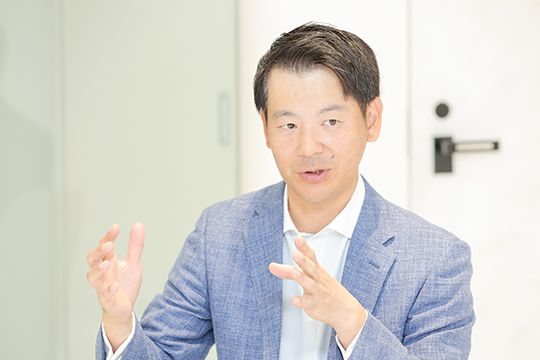

Chatani: That’s quite a checkered past but I guess it was this sort of “event” that triggered you to start your business for the second time.
Yoshida: That’s right. However, my "pre-event" experiences have been really helpful. They made me realize that if I wanted to start a new business, I had to go into a large market or else I would incur high sunk costs when I had to exit and that I should do a platform business because I needed to prepare a system to prevent me from losing clients. They also gave me a chance to think that the reason why my colleagues left was because there was no dream other than to make money. If that’s the case, what should I do going forward?
Chatani: So, you’re saying that salary is not the only factor that deepens engagement between a company and its employees.
Yoshida: That’s right. The structure of a company is the same for all companies, which is to increase sales, make a profit, raise salaries and reinvest. Even so, in order for employees to feel that they want to stay with the company, I think there must be a "dream.” Therefore, we must properly define "what is the dream that we ourselves can endlessly pursue" and work based on that.
On the other hand, I used 100% of my own capital when I started my first business but I felt that this created a society that was stacked like a geological formation on top of existing businesses, which made me feel almost unconnected to the outside society. So, I made the decision to accept outside capital. I also changed my mind about trying to be integrated into the existing society by using various contacts of people who had great success in the past and the knowledge and networks of those who already had the infrastructure.
It’s like all these lessons learned from my first startup came to fruition at CrowdWorks.
Chatani: In recent years, more and more people have been thinking about starting their own businesses and have actually been doing so. On the other hand, it’s an established theory that the vast majority of start-up companies cease to exist within a few years. What do you think are the reasons for the success of your second start-up?
Yoshida: The first startup lasted for about four and a half years and didn't end well. That's why my mind was made up within me the second time. I invested all my money and faced the business with the determination to not miss even a single day of work.
I was determined to make a fresh start, and as I did so, many people helped me, and the number of colleagues grew tremendously. Most of the people I’ve met since I decided to establish the company, including the current key members, have become colleagues.
Having had such an experience, I’m convinced that my state of mind and determination is conveyed to everyone. I also believe that this enthusiasm is the reason why we were able to go public in only three years.
Scope of Work Will Expand and Location Restrictions Will be Eliminated Going Forward
Chatani: CrowdWorks seems to be attracting many workers and companies that order work, but what types of work are most common?
Yoshida: At the time of our founding, I wanted to connect engineers and designers with companies that wanted to order work through our platform via the Internet, and even today, such work accounts for about half of our business. The remaining half of the work is incidental to this work, such as writing and text production work, photo shooting and processing, video shooting and editing, and other work that creates the elements that make up the Web.
The latter is becoming increasingly easier for those raising children and retired seniors to take on. Therefore, we’re also helping to increase job opportunities by providing a learning opportunity called "College for Everyone" (an online community-based learning career place). Our aim is to create a situation where anyone can be offered employment opportunities by showing model cases where people can learn how to do this kind of work without having any experience.
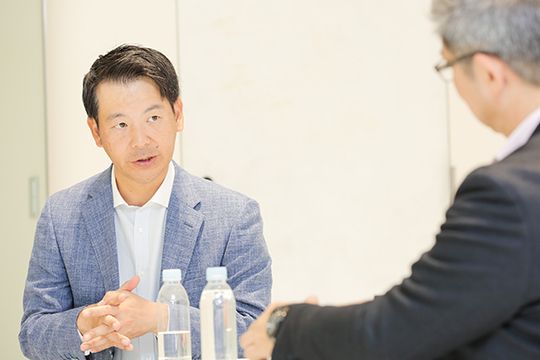

Data shows that participants range in age from 18 years old to a maximum of about 82 years old. There are people who not only want to earn money but also want to use their skills to connect with and help others. Also, people who are registered are not concentrated in Tokyo but spread out in various locations, much like the distribution of the population in Japan. There are people who say, "I’m really happy to be able to help someone even from a place far away from the city.”
If you have access to the Japanese-language site, you can gain access and register even from overseas, so there are also workers living abroad. This is proof that "everyone is free on the Internet.”
Chatani: What kind of work do people working from abroad receive?
Yoshida: There are various cases according to the region but there are cases of so-called "high-skilled" individuals. For instance, a person who moved to London for family reasons is now consulting for a Japanese company and a person with programming skills who opened a programming class in Cambodia is also getting work through CrowdWorks.
Chatani: From the perspective of companies ordering work, I guess they don't really care where their clients live.
Yoshida: Some used to say that they prefer workers with whom they can have meetings face to face. However, remote work has become more acceptable with the spread of COVID-19 and it seems to be less of a concern now.
This is not a trend that can be seen just on our platform. CrowdWorks also provides a service where a concierge listens to the requirements of companies and introduces them to human resources, but there was a problem involving a shortage of engineers in Tokyo. So, when we told companies that we would be able to introduce many engineers if we expanded our focus to the entire country or around the world, those that had previously said, "We need engineers in Tokyo," began to take an interest.
Realizations Gained from Situation where Nine out of Ten People Are Unable to Get Jobs
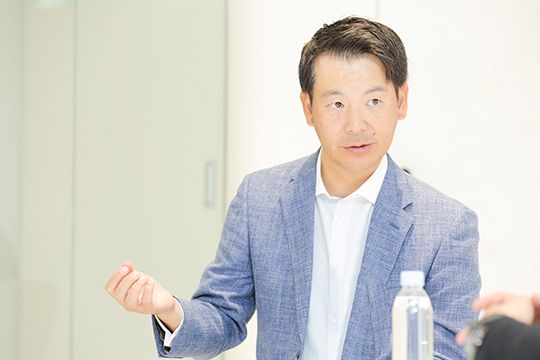

Chatani: In terms of the uniqueness of CrowdWorks, the educational program that was discussed earlier is also interesting. When you join a company, there is on-the-job training and there are training programs to acquire skills which are part of your work. However, if you’re taking on crowdsourcing work, you’ll need to learn on your own. Why are you actively providing educational opportunities to these people?
Yoshida: We’ve been providing engineers and designers with job matching opportunities but we’ve seen cases where, for example, the scope of work of designers creating websites expands further such as doing low-end development including coding, creating texts and images and transcribing illustrations.
Meanwhile, we were implementing initiatives to provide hands-on programs by collaborating with the Gender Equality Center to promote work-from-home employment. CrowdWorks was also providing jobs to those who completed the program. In doing so, we came to understand that in reality, only about one out of ten people who had taken the course was able to receive work.
Even though everyone was taking the course with a will to work, 10 out of 100 students were able to receive orders and only a few of them were able to continue receiving work after that.
I thought that maybe there’s a problem with the program we were offering but when I heard people who are involved in similar efforts say that the “odds are similar,” it changed my perspective on life.
Looking at the world at large, there are people with all kinds of values, lives and careers, and if you put them all on the table, only about one in ten can get jobs. I felt that this is actually a microcosm of Japan as a whole, where people have the will but for some reason cannot improve their skills or get jobs. I began to think seriously, "How can we provide benefits and contribute to these nine people who have been involved in CrowdWorks?”
This resulted in the launch of CrowdWorks' online education and community as a place to learn. This is a form of mutual support and mutual teaching, and this initiative is not attached to a business unit but is directly under the president's office.
“How to Contribute to Nine out of Ten People"
Chatani: Is profitability the reason for operating the education business directly under the president's office?
Yoshida: It’s because this is still a business that should not seek growth. If it’s subject to the standards of a listed company, we need to discuss "the growth percentage that has to be achieved during the fiscal year." Then, we would have to look at this initiative from a business perspective, such as, "who shall we sell this material to?”
However, the reason for offering educational programs is, as I mentioned earlier, based on "how to contribute to those on the 9 out of 10 side of society.” It’s not our intention to take money from these people. Of course, we do charge a small fee for materials and attendance but this is because even a small fee changes the seriousness of the students compared to when it is provided free. So, is it necessary to increase the course fee to 100,000 or 200,000 yen? We don’t think so, at least at this stage. In order to increase the number of participants, broaden its base and "solve the social problem of 9 out of 10 people,” we’re nurturing this business directly under the president's office as a business that doesn’t pursue growth.
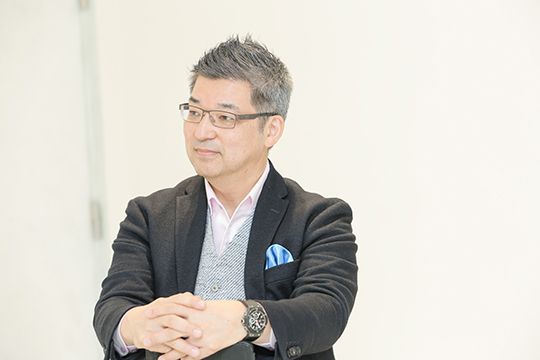

Chatani: At professional firms like ours, we’re faced with the problem of what kind of education is necessary for junior-level auditors and accountants to become professionals, now that AI can replace various "simple" tasks. That's when I started thinking about using AI to create educational materials. How are you creating educational materials?
Yoshida: We have a person who has been specializing in creating educational programs for about seven years now. He works with various partners to gather various success cases and continues to create programs while sometimes inviting people with successful experiences as instructors. He has compiled a lineup of about 20 different teaching materials. We can now use them as teaching materials while packaging them for beginner to advanced courses.
Chatani: I imagine it was hard work to create teaching materials from scratch. Were you aware that “this is an important thing” from the beginning?
Yoshida: I had an opportunity to talk with this staff member before. Actually, there were some people within the company who criticized him, saying that we focused too much on a business that did not contribute to earnings. There were even hard-line arguments that we should give up such an initiative.
When I spoke directly with him at the time, he said, "CrowdWorks’ business is to connect companies and workers and I think it’s necessary to work enthusiastically in regard to the companies. However, it seems that our main approach is: 'this is the kind of client we have, so we need workers.’ As we are operating a matching business, we also need to serve the workers and make it better for them. I’ll continue to do this no matter what." I found out that he was working with the spirit of an in-house venture.
Since talking with him, he is now called upon when we launch new initiatives so that we can hear more about the opinions of workers. It’s even referred to as an "indispensable business" now. It means that it’s not just about pursuing profit. As a result of making efforts in this way, the business has now become profitable.
Chatani: In this sense, I guess it was good that you kept the business directly under the president's office.
How Do We Move beyond the Biases Associated with "Working?"
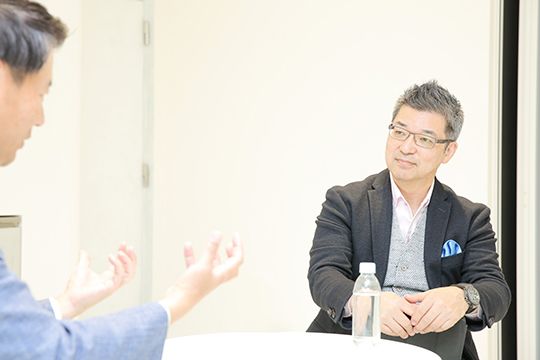

Chatani: I feel that many managers and administrators would be "envious" of the existence of the person in charge of creating the educational materials you spoke of earlier. Where does the autonomy of such workers come from? I think this may be an opportunity to reconsider the idea of "working.”
Yoshida: First of all, I believe that there are biases in the way we work. For instance, the right to have private property was created after the Industrial Revolution in the 18th century, which can be considered as a very recent event in the long history of mankind. As such, many of what are considered "norms" today have become so in the last 200-300 years or so.
From a broader perspective, there are many norms that are overturned fundamentally. At CrowdWorks, we provide training to employees who have just joined the company so that they will know that “there’s a bias within us” and think about it. We tell them that a human being is an animal and that each of us is an individual. Don’t you think it’s important to take time to stop and think that diversity is the norm?
Chatani: I think it’s necessary to think deeply about who we are. On a similar note, many companies have recently been calling for "DX promotion" and in many cases, those who are in charge of the actual project start with "self-searching of the company.”
This is because the company's raison d'être, or what we now call “purpose,” has not been determined and "the reason why the company is promoting DX" is not clear. In this sense, it’s very good to create an opportunity to know about yourself by looking at things you have not noticed before as soon as you join a company, like you just said.
Yoshida: It’s important to have a clear internal decision-making process and to stick to it once a decision is made. However, I don't think "because the CEO said so" is a reason for action before a decision is made. For employees, a company is a place they should utilize and not a place that guarantees their long life. This is why they should express their will and, like the person in charge of creating educational materials, say something like, "The daily report is inefficient and should be abolished.”
In fact, we got rid of the daily report at CrowdWorks and instead changed to a system of sharing just a few words on Slack about their impression of the day. Since changing to this system, they sometimes write longer sentences than we expected (laughs).
Chatani: I guess it’s a matter of whether or not they feel they are being forced to do it.
Yoshida: Yes, I think so. This applies to all operations but I think it’s extremely important to create a system that makes people want to work with a will.
The Meaning of "Working Style" Will Change
Chatani: Now, one last question. What kind of company will CrowdWorks be in 50 to 100 years?
Yoshida: CrowdWorks now has a mission to "become an infrastructure for individuals.” I talked about infrastructure at the beginning but my image of infrastructure is that “the name of the president doesn’t come to mind.” We can't think of the face or name of the heads of organizations that control lifelines such as electricity, gas, water, and public transportation, can we? We would like to create an employment platform that is open to everyone and can be used by paying a minimal amount of money.
I’d like to create a "place" where any individual can earn money if they have the will and where they can connect with others and receive not only monetary rewards but also emotional rewards such as a sense of fulfillment and accomplishment. Specifically, we foresee that when the distribution of work reaches 2 trillion yen, we will be the number one company in the country that uses the Internet to deliver work to all kinds of people.
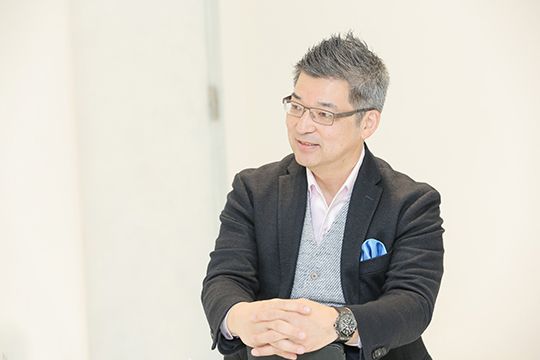

Chatani: You’ll probably be able to achieve that in less than 50 or 100 years.
Yoshida: I hope so. On the other hand, if we’re going to talk about 50 and 100 years from now, it will probably be about “how the working style will change.” Frankly speaking, I feel that the word "work" is somewhat stale. It means that the image of having to endure or follow someone's instructions is attached to it.
However, there are now people who are taking action and making money not because of such a concept, but “because it’s fun” or “because it helps people.”
For example, the person I can call my secretary teaches Pilates, and her motivation is not to work to earn a monthly fee. She says, “I just enjoy seeing people get healthy by teaching them. I’m happy to be of service.”
The implication of "work," which came to exist with the creation of workers about 200 years ago after the Industrial Revolution, is probably coming to an end. I think that in the next 50 years or so, a new way of connecting with people will be developed. Of course, the traditional style of "working" will never disappear, but I believe that a new style will develop over the next 50 to 100 years in which people are rewarded by connecting with others based on their personal feelings.
In this sense, I believe that we’re now entering the later stage of capitalism and that we’re in a period when deterioration will continue while respect for values, such as new SDGs and diversity, and individuals will be nurtured.
What Is Necessary for Diversity Surrounding "Work" to Be Established
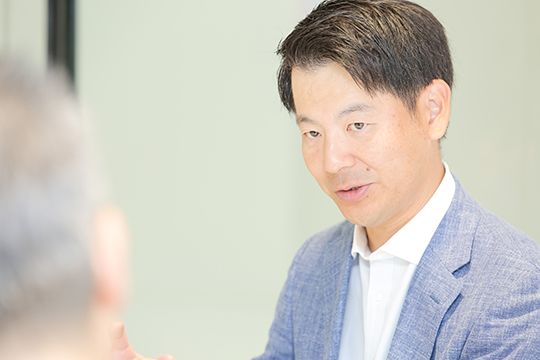

Chatani: Friction between the value of "changing everything by one's own will" and the value that approves the conventional "working style" is likely to occur but what do you think will happen?
Yoshida: From the standpoint of diversity, the latter value should also be respected. This is because everyone is a recognized being. On the other hand, the achievement of goals is what is valued in the business world. With this in mind, a uniform and top-to-bottom approach may sometimes be a faster way to advance reform. Also, whether diversity can really be achieved with all kinds of people being accepted is probably a very difficult issue.
For my part, I still don't know the correct answer but I believe that we need to try to accept things as they are as much as possible now.
To do so, it’s essential to be well educated. Also, when the other person is in a different state, we must imagine “why the person is in such a state” or else, we will only be able to confront them with a feeling of anger.
CrowdWorks provides opportunities for employees to share "the most important thing in their lives" with their teams during training. Sharing episodes in this way creates a sense of dignity and encourages participants to face each other as "a person" rather than on a work basis.
This is one approach to shift from the conventional way of working, in which the present is denied and the starting point for evaluation is in the future, which is like being told, "You’re a new graduate and don't know anything so shut up and work hard. Do as you’re told. You’ll be recognized when you’re able to do this.”
Today, the future is highly uncertain and in a sense, it’s natural to think, "Even if I shut up and work hard, nothing is guaranteed.” Therefore, we need to acknowledge the "present." I feel that this will clearly change the way management and other aspects of work will be conducted.
Profile of Interviewee
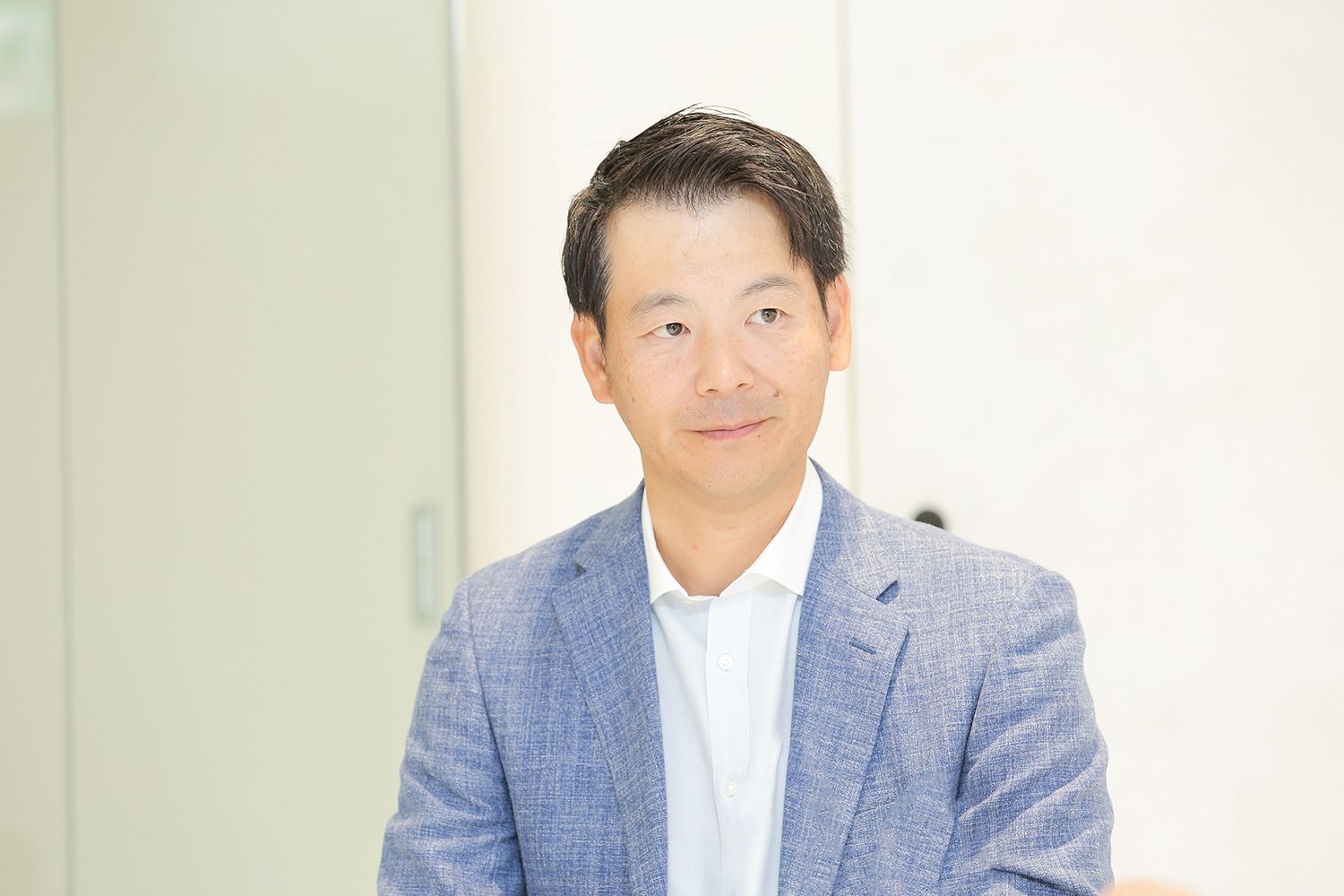

Koichiro Yoshida
President and CEO of CrowdWorks, Inc.
Koichiro is the President and CEO of CrowdWorks. He founded Crowdworks Inc, in 2011 which provides the Japan's largest crowd sourcing service and has taken lead in offering.
The company was listed on TSE Mothers in 2014 and provides services to over 4.50 million users which includes crowd-workers, 12 government institutions and 740,000 companies as of June,2021. In 2015,he was awarded to Workstyle Innovative Award in Japan's Venture Company Award of Ministry of Economy,Trade and Industry.
Follow us on KPMG Ignition Tokyo LinkedIn for the latest news.
Connect with us
- Find office locations kpmg.findOfficeLocations
- kpmg.emailUs
- Social media @ KPMG kpmg.socialMedia



